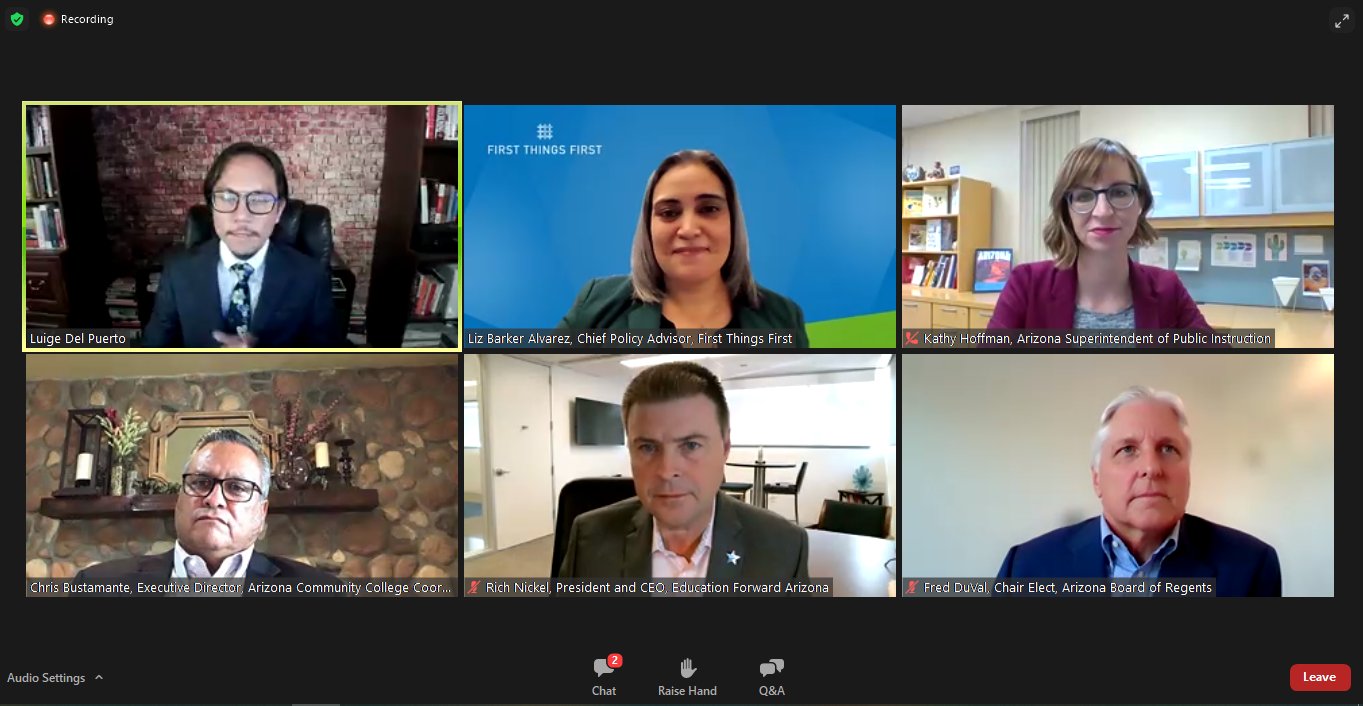
Morning Scoop: Experts Discuss Moving Education and Workforce Development Forward
In a conversation hosted by Education Forward Arizona in partnership with the Arizona Capitol Times, leaders from across the P-20 education continuum shared their thoughts about what it will take to move education forward and to create a strong economy and improve the quality of life for all Arizonans.
A major theme from the conversation was the direct relationship between educational attainment and economic growth. Meeting the state’s Achieve60AZ attainment goal by 2030 is possible and will take coordination from both the education and workforce systems. Education attainment begins with our earliest learners in quality early learning settings, continues through the K-12 education system, and culminates in our community colleges, Tribal colleges and universities. Investments in each part of the education continuum will lead to greater attainment, good jobs, decreased spending on social safety net programs and increased quality of life for all Arizonans.
The expert panel also discussed leading an innovative response to support recovery. For instance, the Arizona Department of Education is supporting teachers by offering mentoring and high quality professional development; along with interventionists to support students and a platform of digital learning tools. The Department also added 140 professionals to schools to support mental health and also invested in broadband technology and skill-building that students need to be successful. The early education community has been working to use one-time federal funding to help programs to re-open or to sustain their operations so that parents have an opportunity to work or pursue a postsecondary education. Arizona’s community colleges are instituting innovative approaches to increase access and affordability, with some offering free or tuition with no increases, relieving student debt, allowing students to re-take courses they have failed and offering classes for free to students. They are also creating pathways that are helping people get to jobs faster (8 months or less) with good wages that are stackable and can lead to other credentials or a degree. The state universities have shifted their ability to meet students where they are, while ensuring students can readily transfer credits earned.
Knowing that much progress will depend on legislative solutions, the panel covered what Arizona needs to move education forward during the 2022 legislative session and beyond. For the universities, it will be critical to have financial support for the Arizona Promise Program that would provide scholarships to students who show merit and financial need to attend a community college or university. The universities have also presented a proposal to expand engineering, medical school and allied health programs and launch the Innovation Alliance, a partnership to assess and meet workforce needs in communities. Community colleges are seeking expenditure limitation relief, support for workforce programs, funding for early college programs and to fund operating formulas, and support free community college which is proposed at the federal level. For early learning, a long-term sustainable investment in early learning is needed that will provide parent choice and aid in developing innovations to address the workforce shortage in the early education field.
We are grateful to these leaders who joined us in the conversation to share their thoughts and vision for how we’ll reach the goals in the Education Progress Meter:
- Kathy Hoffman, Superintendent of Public Instruction, Arizona Department of Education
- Liz Barker Alvarez, Chief Policy Advisor, First Things First
- Chris Bustamante, Executive Director, Arizona Community College Coordinating Council
- Fred DuVal, Chair Elect, Arizona Board of Regents
- Rich Nickel, President and CEO, Education Forward Arizona
Watch the full Morning Scoop conversation here:
